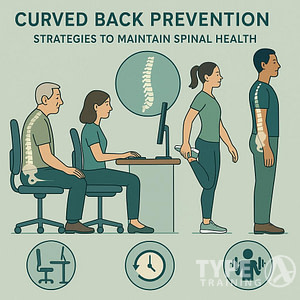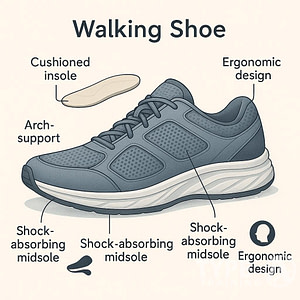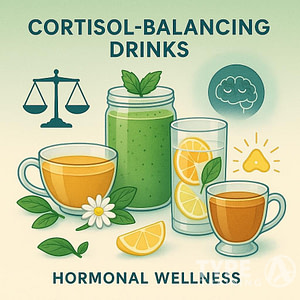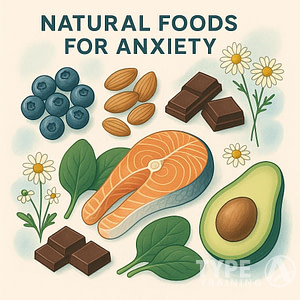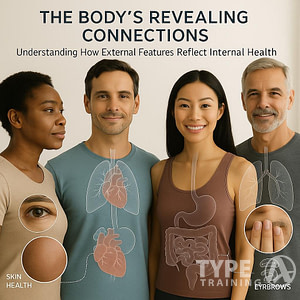Alcohol and sleep have a complex relationship. Understanding how alcohol affects your sleep is crucial. Many people believe that a nightcap can be a helpful sleep aid. While it’s true that alcohol might help you fall asleep slightly faster, it ultimately disrupts your sleep quality by reducing REM sleep and increasing awakenings during the night. This disruption affects how rested you feel the next day.
Regular alcohol consumption before bed can also have more long-term effects on your sleep health. Over time, it can lead to an imbalance in your sleep architecture, worsening sleep disorders such as insomnia and sleep apnea. Drinking before sleep interferes with your natural circadian rhythms, making it harder for you to achieve restorative sleep.
If you consider managing your sleep habits, it’s important to be aware of how alcohol plays a role in your nightly rest. Adjusting your consumption habits is a practical step toward better sleep and improved overall well-being.
Popular posts:
Understanding Sleep and Its Phases
Sleep is a complex process, governed by circadian rhythms and characterized by different stages. These phases include both REM and NREM sleep, which play crucial roles in maintaining health and well-being.
Circadian Rhythms and Sleep Architecture
Your body’s internal clock, known as the circadian rhythm, regulates the sleep-wake cycle over a 24-hour period. This rhythm responds to external cues like light and darkness, making it crucial for aligning your sleep patterns with the day-night cycle.
Sleep architecture refers to the structure of sleep, including its cycles and stages. Typically, the human sleep cycle repeats every 90 minutes, moving sequentially through different phases. This architecture ensures you experience both restorative deep sleep and more active phases.
Understanding how circadian rhythms influence sleep can help you manage sleep disorders. Disruptions to this rhythm can affect sleep quality, leading to health problems.
Stages of Sleep: REM and NREM Phases
Sleep is divided into two main types: REM (Rapid Eye Movement) and NREM (Non-REM). NREM sleep includes three stages, with each becoming progressively deeper. Stage 1 is light sleep, while Stage 3, known as deep sleep, is crucial for physical restoration.
REM sleep occurs multiple times throughout the night and is associated with vivid dreams and memory consolidation. This phase is vital for emotional regulation and cognitive processes.
The interplay between REM and NREM sleep contributes to sleep homeostasis, ensuring sustained sleep quality. A balance between these stages is important for emotional and physical health, as well as overall well-being.
Effects of Alcohol on Sleep Quality
Alcohol intake can significantly affect your sleep quality by disturbing sleep onset and maintenance and exacerbating sleep disorders. Understanding these impacts can help you make informed decisions about your alcohol consumption and its potential effects on your nightly rest.
Impact on Sleep Onset and Maintenance
Alcohol is often used as a sedative to help with falling asleep faster. However, this initial drowsiness can lead to problems with sleep maintenance later in the night. As alcohol is metabolized, it can cause increased wakefulness, disrupting the normal sleep cycle. This fragmentation often leads to reduced sleep efficiency and increased wakefulness after sleep onset.
Sleep onset latency, or the time it takes to fall asleep, might be shortened by alcohol initially. Yet, the subsequent sleep is often shallow and restless, resulting in poor sleep quality overall. The lightest stage of sleep, known as N1, tends to increase after alcohol consumption, which means you might experience more transitions and awakenings throughout the night. Over time, this pattern can contribute to chronic sleep disturbances.
Alcohol and Sleep Disorders
Alcohol misuse can worsen existing sleep disorders such as insomnia and sleep apnea. In individuals with insomnia, the sedative effects might initially mask symptoms, but repeated use can lead to a dependency and further reduce sleep quality. People suffering from sleep apnea may experience exacerbated symptoms, as alcohol relaxes the muscles of the throat, leading to increased airway collapse.
Those with an alcohol use disorder may find their sleep architecture significantly altered, leading to long-term disruptions. The link between alcohol and sleep quality is evident, underscored by the fact that withdrawal from alcohol can also cause pronounced sleep disturbances. Recognizing these factors can be critical for managing any sleep-related issues effectively.
Alcohol’s Role in Sleep Disruptions
Alcohol consumption can significantly disrupt your sleep patterns. Although it might initially promote relaxation and make falling asleep easier, it often leads to fragmented sleep and other long-term issues.
Consequences of Heavy Drinking on Sleep Patterns
Heavy drinking can severely disrupt your sleep cycle by altering your circadian rhythm. This is the body’s natural clock that regulates sleep and wakefulness. Alcohol affects the production of sleep-inducing hormones, leading to reduced Rapid Eye Movement (REM) sleep, a critical stage for restorative rest.
As alcohol wears off, your sleep becomes lighter and more disrupted. You may awaken frequently during the night, contributing to increased sleep problems and overall poor sleep quality. This cycle not only disturbs immediate rest but also creates lingering fatigue and drowsiness during the day. Chronic consumption in large quantities can worsen these effects over time.
Alcohol Dependence and Sleep Abnormalities
Developing alcohol dependence often exacerbates sleep abnormalities. People with this condition may experience more pronounced instances of insomnia and other sleep disruptions, such as sleep apnea or sleep-related breathing issues.
Alcohol consumption before bed can exacerbate these problems, leading to more complex and severe conditions. It is also linked to issues like circadian rhythm abnormalities, where your body’s internal clock struggles to maintain a healthy sleep-wake cycle. These disruptions are particularly challenging to manage and may require medical intervention or lifestyle modifications to restore healthier sleep patterns.
Specific Sleep Disorders and Alcohol
Alcohol can significantly impact various sleep disorders, leading to complications such as sleep apnea and parasomnias. These issues can disrupt your sleep quality and overall health.
Alcohol’s Impact on Sleep Apnea and Snoring
Alcohol relaxes the muscles in your throat, which can exacerbate conditions like sleep apnea. In obstructive sleep apnea, the relaxed muscles can obstruct the airway, causing breathing disruptions during sleep. This can lead to increased episodes of snoring and pauses in breathing.
Snoring, often a byproduct of sleep apnea, becomes more pronounced after alcohol consumption. Drinking before bed can worsen these symptoms, reducing the quality of your sleep and increasing daytime fatigue. Understanding the connection between alcohol and these disorders is crucial for managing their effects effectively.
Alcohol Related Parasomnias and Movement Disorders
Parasomnias, including sleepwalking and night terrors, can be influenced by alcohol use. Alcohol disrupts the normal sleep cycle by initially increasing deep sleep but then leads to fragmented sleep as the night progresses, which can trigger such disorders.
Periodic limb movement disorders are another concern, where alcohol may aggravate symptoms. This condition involves involuntary leg movements during sleep, affecting restfulness. Breathing-related sleep disorders like these can worsen with alcohol, leading to restless nights and tiredness during the day. Adjusting alcohol consumption can help manage these sleep-related issues.
Managing and Mitigating Risk Factors
Managing the impact of alcohol on sleep involves adopting effective strategies to prevent and address associated risks. Key actions include both medical interventions and lifestyle changes that enhance sleep quality and reduce alcohol’s adverse effects.
Prevention and Treatment Strategies
Prevention of alcohol-related sleep issues can involve abstinence or moderation. For those struggling with alcohol dependency, seeking professional help is crucial to mitigate relapse risks. Implementing practices to increase sleep efficiency, such as establishing a consistent sleep schedule and creating a restful environment, is beneficial.
Medications targeting GABA receptors might be prescribed by health professionals for managing sleep disturbances. Public health initiatives focusing on education about the risks of using alcohol as a sleep aid can support prevention efforts.
Lifestyle Changes and Behavioral Therapies
Incorporating lifestyle changes is vital for improving sleep quality in those affected by alcohol use.
Enhancing sleep hygiene practices, like maintaining a dark, quiet sleeping environment, can decrease daytime sleepiness and improve overall sleep patterns.
Regular exercise and a balanced diet can also play supporting roles.
Cognitive Behavioral Therapy (CBT) is an effective behavioral approach that can assist individuals in addressing comorbid depression and sleep disorders.
Personalizing strategies based on age and genetics, especially for older adults, can optimize outcomes.
Focusing on long-term behavioral changes ensures sustainable improvements in sleep health.







